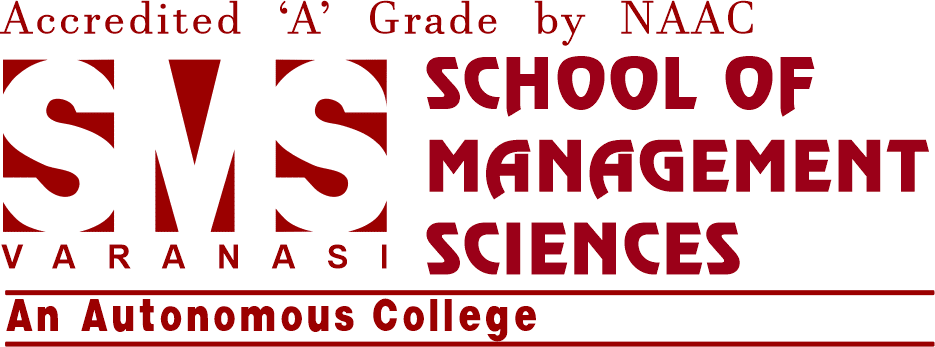At SMS Law College, we believe in the holistic development of our law students. We understand that while academic and professional development has to be the main focus for a BA LLB student, skills for a lawyer to be successful in legal careers go far beyond books and legal knowledge.
Here are 5 crucial skills we advise all our BA LLB students to work on:
1. Communication Skills:

Excellent communication skills are a must for all law students. They need to learn to articulate complex legal concepts and issues clearly and concisely to clients, judges, and opposing counsel – both orally and in writing.
As lawyers, they will need to actively listen to their clients and show empathy towards their concerns. In courts, they have to present arguments persuasively and advocate for their clients’ rights. Often, they also have to negotiate in-court and out-of-court settlements effectively. They have to keep their clients informed about the progress of their cases, offer them legal advice, and help them make informed decisions.
Lawyers must be good at organizing their arguments well and supporting them with evidence and legal reasoning. They need to be able to think on their feet while responding to arguments of the opposing counsel and question witnesses skilfully and adapting their communication style according to their personality and demeanour.
Written skills for a lawyer include drafting legal documents (such as legal briefs, petitions, and contracts) in the required format and according to guidelines, and communicating with different stakeholders in a case (client, opposing counsel, judges, and other legal professionals) through emails and letters while adhering to protocols and maintaining confidentiality.
That’s not all. At SMS Law College, we teach our BA LLB students to learn to read and effectively use non-verbal cues (such as eye contact, body language, and facial expressions. Reading these cues can help lawyers to assess if the client or a witness is being truthful or not. And using them effectively can help them look professional, appear confident, and establish credibility.
2. Research and Analytical Skills:

As law students, and then as lawyers, you will be spending a significant amount of time researching legal precedents, case laws, and relevant legislation.
Strong analytical skills for a lawyer are essential because he/she needs to evaluate the validity of arguments, identify key facts, and build a solid case strategy. Some of the ways in which SMS Law College helps in nurturing your research and analytical skills are by offering you opportunities to participate in lock trials and engaging in legal research projects.
We also advise you to embrace active reading. Some of the tips our law professors offer are:
- annotate your textbooks and legal materials,
- highlight key points,
- find connecting ideas, and
- questioning assumptions.
Indian Kanoon, Vakilsearch Judgement Directory, Supreme Court of India Website (Judis), and High Court Websites are some of the free websites where you can read up on legal cases in detail.
And reading is not enough. You must analyze cases you read to:
- identify the legal issue, facts, holding, reading, and the court’s rationale, and
- break it down step-by-step to identify what legal principles were applied and how.
Do not hesitate to discuss these case studies with your peers and professors and seek their feedback on your research and analytical work.
3. Client Management and Interpersonal Skills:

If you want to succeed as a lawyer and run a law firm successfully one day, you must have strong client management and interpersonal skills. You need to know how to build a rapport with your clients, make them feel comfortable, and foster an open communication environment so that they can share sensitive details with you.
Law students also need strong interpersonal skills so that they can ask probing questions to clients and witnesses, empathize with them, and interpret nonverbal cues.
At SMS Law College, we understand that our BA LLB students join us straight after school. We teach them how to communicate with clients from diverse backgrounds and adjust their communication styles according to their clients’ understanding and comfort levels. We train them how to explain complex legal concepts to their clients clearly so that they can make informed decisions.
As you might already know legal cases in India might stretch for a long time and can be unpredictable. Hence, lawyers need to set realistic expectations for their clients, keep them informed about the progress of their cases, clear their doubts, and even manage anxieties throughout the process.
Like all professions, high client satisfaction results in positive word-of-mouth referrals for lawyers, which helps with in helping you build a wider client base and gain professional success.
Hence, we highly recommend our BA LLB students participate in simulated client interaction activities and moot court competitions in class. Working with experienced lawyers is a great way of observing how to deal with clients. So, do apply for internships as early as possible.
4. Legal Research and Writing:

Legal writing is a distinct skill. It has to be clear, precise, and follow very specific guidelines. In a country like India which has multiple official languages, English is widely used for drafting documents or presenting arguments. However, the best lawyers are also familiar with the regional languages of the areas they operate in.
In legal writing, it is very important to cite relevant statutes, case laws, and legal principles in the prescribed format – often following The Indian Citation Manual. In India, legal writing maintains a strictly formal language and writing style, avoids contractions, and a clear and logical organisation of arguments and information.
A good lawyer must know how to craft compelling arguments that can persuade judges to rule in his/her client’s favour. And it needs practice.
At SMS Law College, we offer specialised legal writing courses for our law students. You can also follow legal blogs and websites online where you can find some of the best legal research and writing tips and strategies.
5. Negotiation and Advocacy Skills:

A lawyer spends a lot of his/her time negotiating settlements, plea bargains, and contracts. To negotiate something, you need to understand your client’s as well as the other party’s needs and interests, effectively communicate your client’s position to the other party, and craft win-win solutions whenever possible.
In courts, a lawyer is a champion of his/her client’s rights. They must have excellent advocacy skills to persuasively present arguments, anticipate opposing viewpoints, and present evidence in a way to influences the judge favourably.
Do you remember the Shayara Bano case which resulted in Triple Talaq being made illegal in India in 2019? Advocate Mr Amith Chadha played a pivotal role in securing a landmark victory in this case. Mr Chadha argued that Triple Talaq was not a recognized form of divorce under the Muslim Personal Law (Shariat) Application Act, 1937 and also highlighted that various High Courts and the Supreme Court had criticised the practice and urged the court to strike it down.
Mr Chadha’s advocacy, combined with the arguments presented by other lawyers and the petitioners, played a crucial role in netting a victory in this case – which became a significant step towards gender justice and equality in India. We urge our students to participate in moot courts and get practical experiences to hone their negotiation and advocacy skills.
As a student of the BA LLB program at SMS College, you should use the college resources and seek help from your professors to hone the skills for a lawyer mentioned above – and you will certainly succeed in legal careers.
Best of Luck!

